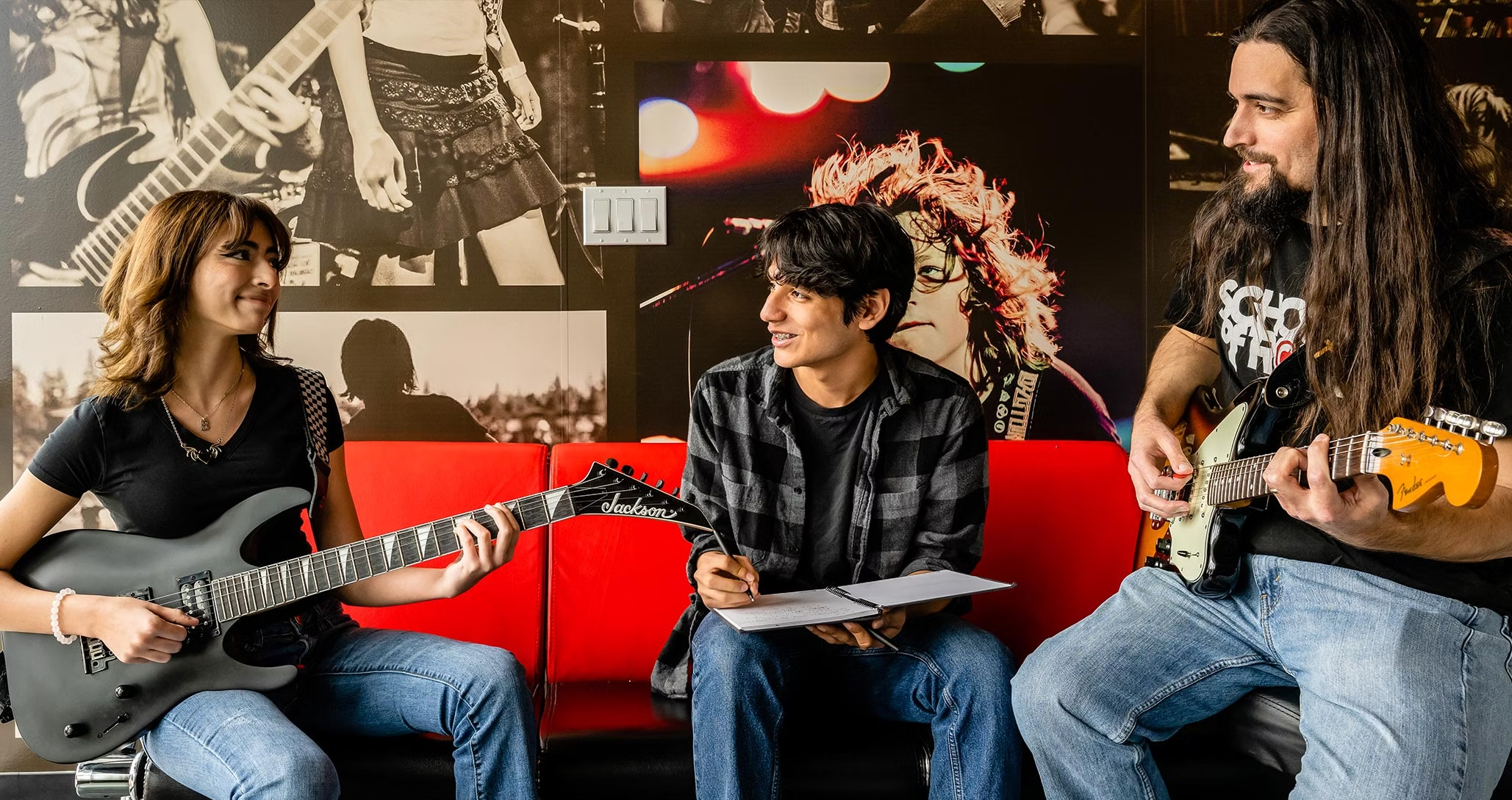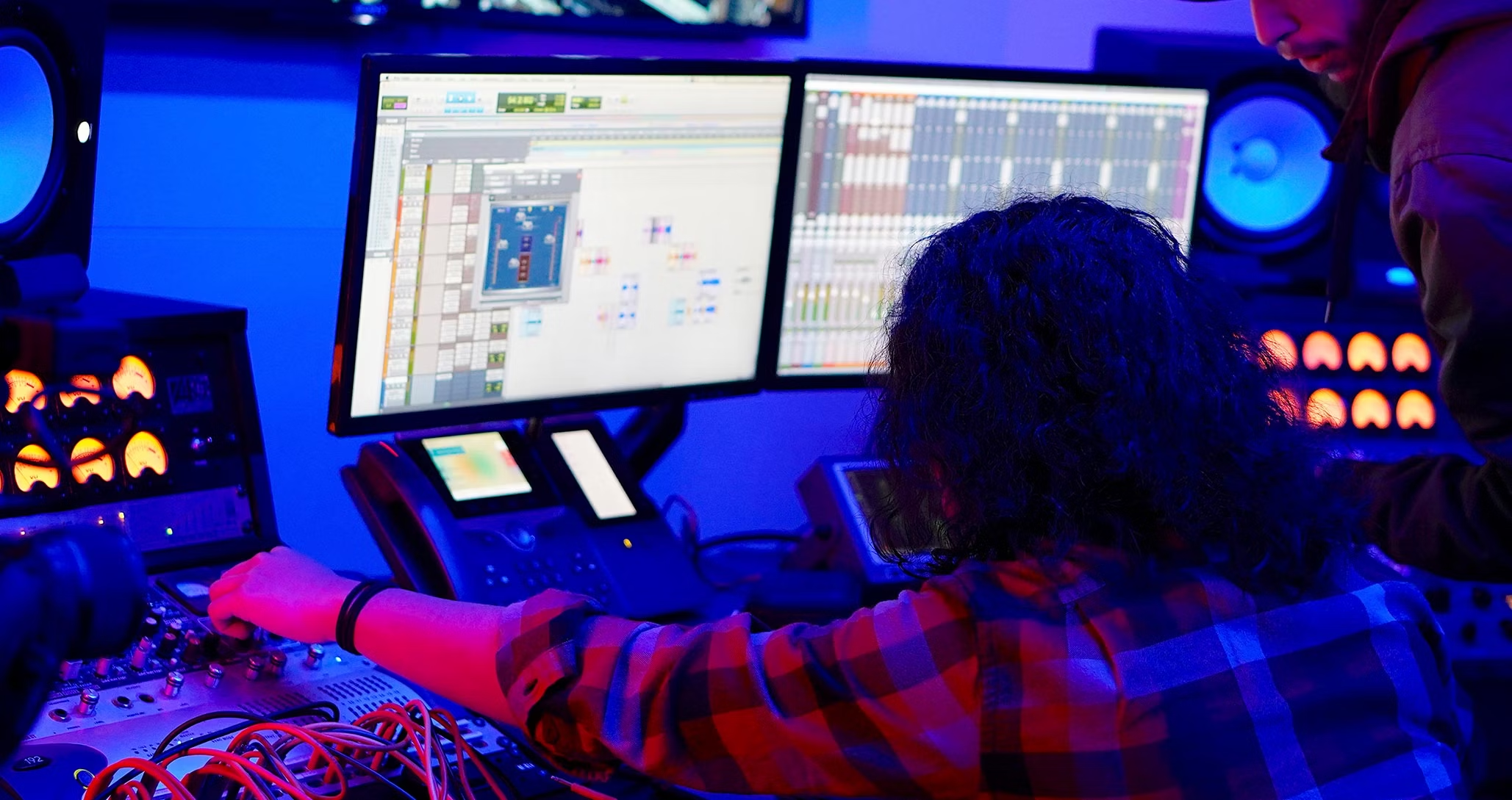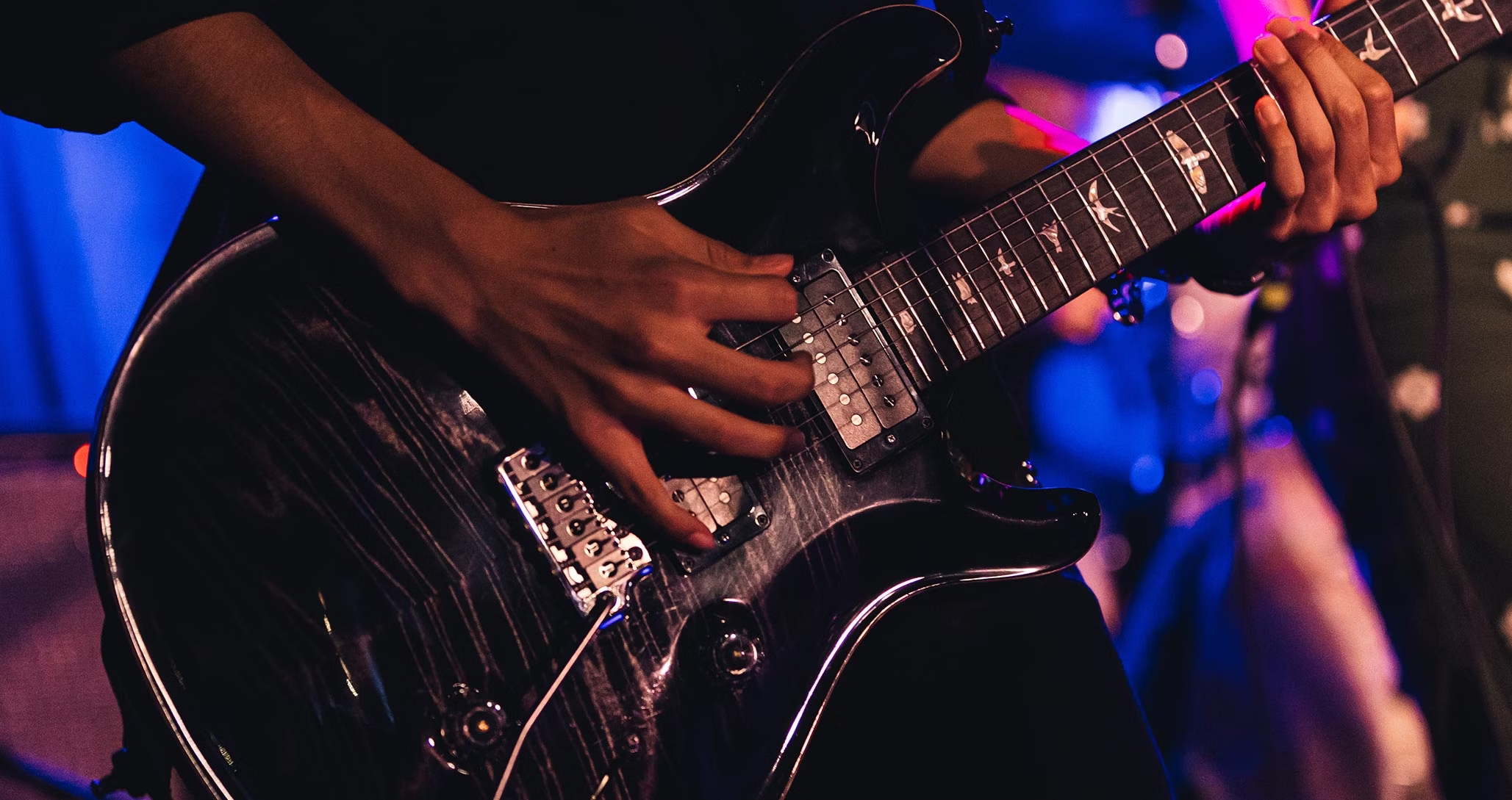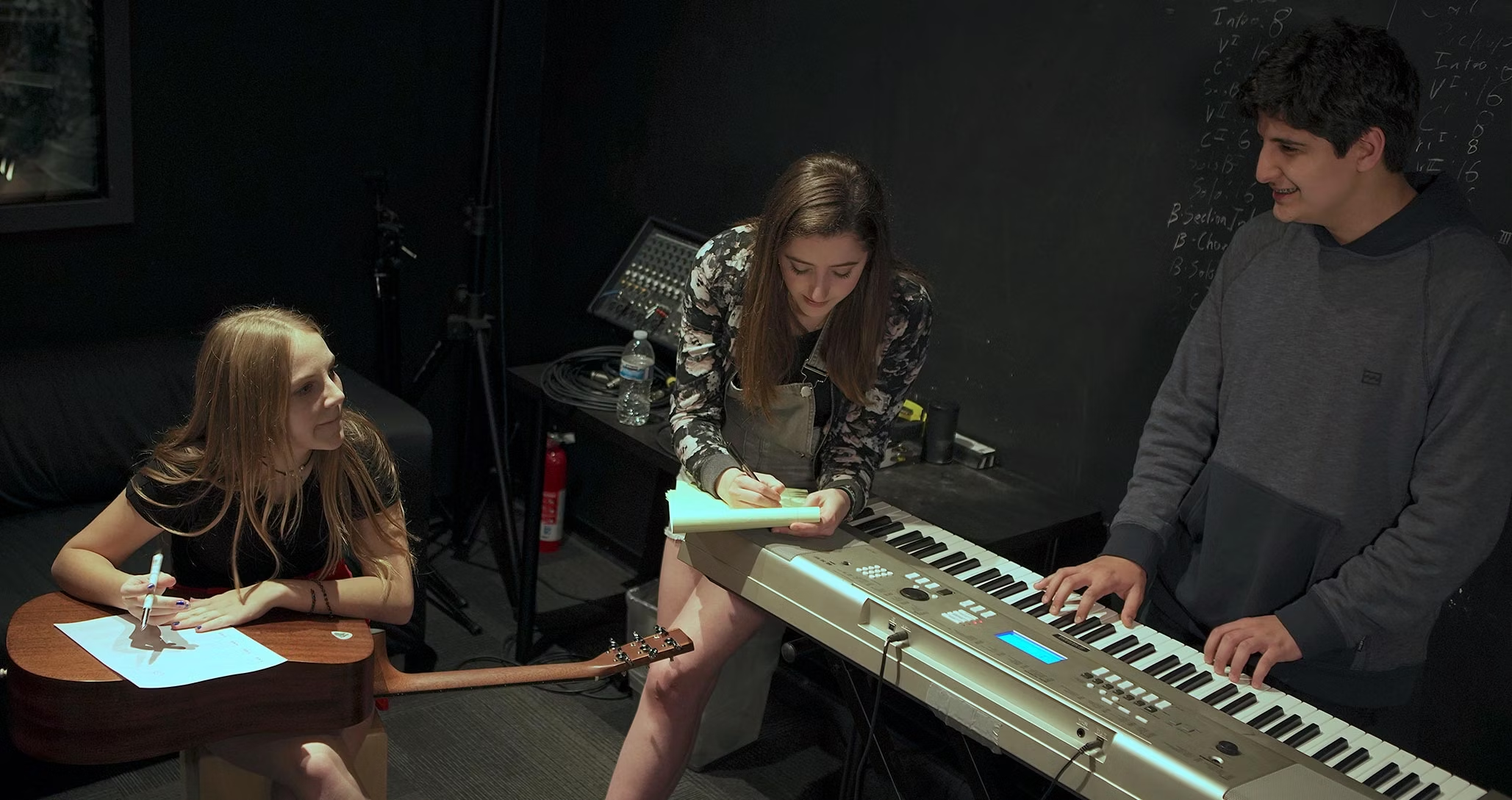Dave Grohl, PJ Harvey, Prince, St. Vincent - what do these megastars have in common? They all play lots of different instruments. But which came first – the skill or the stardom?
Which family of musical instruments does the piano belong to? Some will argue that its 230 strings solidly classify it as a string instrument, perhaps. However, the felt-tipped hammers strike the strings to produce the note, which actually makes the piano a percussion instrument.
An old music teacher of mine probably said it best: the piano is every family of instruments. His theory was that a pianist’s left hand will mimic the bass, and add harmonies found in the rhythm guitar, while the right hand offers the melodies and counterpoints found in lead guitars and vocal lines; all the while, its percussive rhythms will mimic the drum kit.
He played every instrument in our band, including shredding violin solos. He is one reason I approach my solo piano arrangements holistically, as harmonic interpolations of the piece, as a sum of its parts.
So why learn to play multiple instruments?

It Can Make You More Well-Rounded
An interesting thing happens with dense harmonic compositions when you add other instruments into the mix. Maybe the piano’s bassline begins to clash with the bass; the octave chosen for your synths chords could complement or overpower rhythm guitar parts; high, trilling solos might not layer well with one another.
Our understanding of theory is at the heart of all music, and as a study, it is infinite. Theory does not start and end with a single instrument. To understand the theory behind your bandmates’ instruments is to understand how these instruments play with one another. Knowing how to play multiple instruments will make you a more well-rounded musician.
When you begin composing, you can write whatever melodies you choose, but knowing how to voice them begins with studying other instruments. The acquisition of general theory is made easier by learning the piano, as it is perceived as a more visually responsive instrument.
While the piano is linear, the guitar makes sense to the spatially-minded, moving finger shapes up and down the neck of the guitar. Learning theory might seem like studying charts of intervals or analyzing staff notation but it can also be as simple as objectively listening to a piece of music.

Understand Other Band Members
While many instruments have been explored for unique methods of use, there are—generally speaking—best practices for how to play them. Additionally, because of how theory is taught, and its subtle differences in curricula from instrument to instrument, there are keys, chords, notes, and rhythms that may be more natural to play on one instrument, and less organic on another. Pianists may default to playing in C since it’s all the “white keys”; meanwhile, guitarists may default to G, as it is one of the first open chords they learn.
A bassist might study their minor pentatonics geometrically, by shape, or numerically, by fret position; the bottom-most layer of the composition may be built at least in part by how easy it is to reach certain intervals with the strings tuned a fourth apart. Similarly, guitarists are constantly selecting chord voicings based on how many fingers they have available, and how far they can stretch. A pianist may never be aware that certain tight chord voicings aren’t available to a guitarist in standard tuning—until they learn how to play the guitar themselves.
Studies have shown that as a musician’s skill increases, they experience increases in the density of their gray matter in areas involved with higher-order cognitive processing and auditory processing, increases in neuronal count and the volume of fiber tracts, increases in the quality of interhemispheric communication, and increases in automatization of motor skills. Science shows that music skill acquisition is linked to brain plasticity, even in adults. Learning multiple instruments can allow you, as a performer, to commit the performance of these instruments to muscle memory.

Generate More Opportunities for Yourself
Rockstars come in all flavors, and while the layperson may think of the ultra-famous, there are a thousand working musicians to every mega-star. And working musicians, by definition, work. They look for solo gigs, perform in local festivals, record as session artists, compose radio jingles, and host open mics, among loads of other odd jobs. Multi-instrumentalists are much better positioned to seek and accept jobs if they can fill any position.
Guitarists are plentiful, and pianists may not always be in high demand; so, learning the bass and the drums can open you up to new gigs, while learning guitar and piano can broaden your abilities to make you more of a sought-after performer. Unique instruments may be more bankable, and commonplace instruments may have more total gigs in the marketplace.
Of course, musicians who play multiple instruments are not always sought specifically to play six or seven different instruments but to ensure that communication between the band is at its highest caliber. It can be really helpful to be able to speak the language of multiple instruments in a band situation.
Music industry jobs exist outside performance, too. For example, learning and knowing different instruments can be extremely beneficial in music production.

Expand the Quality of Your Composition
While possible to write for instruments one cannot play, there is no guarantee the parts will make sense for the performer. Knowing how the instruments work will help you write full compositions that truly highlight each instrument. Certain arpeggios may sound wonderful in your DAW but are practically impossible to perform live. Knowing multiple instruments will see you create higher-quality work.
With electronic music production becoming more and more accessible to burgeoning creators, there are scores of young musicians contributing to the corpus of modern music, sometimes with very little training. Digital workstations can be highly useful tools, but can also create impossible (if not wildly difficult) parts – electronic drums ticking faster than a human can play, or with extra limbs; bass lines bouncing through octaves with no regard to live performance.
Knowing how all the instruments in a band work, you can pen music that can be infinitely replayable. You become more aware of textures within an ensemble.
Sometimes, it is easy to notice the increase in the quality of a composition by knowing multiple instruments; sometimes, you can knock out the work much more quickly.

Diversify Your Skills Throughout the Industry
Any professional guitarist will be quick to tell you: there is more to being a guitarist than knowing how to play the guitar. Beyond knowing how to play an instrument, a good musician would know how the instrument works, how to create tone profiles, how to set it up, how to mic it, and how to communicate with other instrumentalists. Keyboardists may need to use various patches, specialized power supplies, and separate pedals.
To learn all these elements of another instrument can help not just with performance and composition, but with sound design, audio engineering, and recording. Not to mention, being able to help your drummer set up a kit, or your bassist set up their ambient mics will just facilitate load-in and load-out at your gigs.

Become a Team Player
Humans are fragile and clumsy, but until we have a 12-fingered android that shreds the sickest of solos, even the best bands take days off, drop parts, and forget their form. We don’t want to always be covering up for a bandmate, but it is nice to know we can if needed.
From calling out chord changes to counting down the form, knowing your other bandmates’ parts can help get through tricky spots of songs, and cover for mistakes.
If you’re passionate about your craft, you’ll make it work; and, arming yourself with as much knowledge and skill about multiple instruments as you can creates an opportunity for you to get on the same wavelength as your bandmates and create some real music magic.
Visit School of Rock to learn a new instrument today
About the Author
Brad Torres is originally from Kansas City and studied theory and tonal composition at the Kansas City Conservatory of Music. He is a keyboard + piano teacher, vocal teacher, guitar teacher, and bass guitar teacher at School of Rock Pearland.



